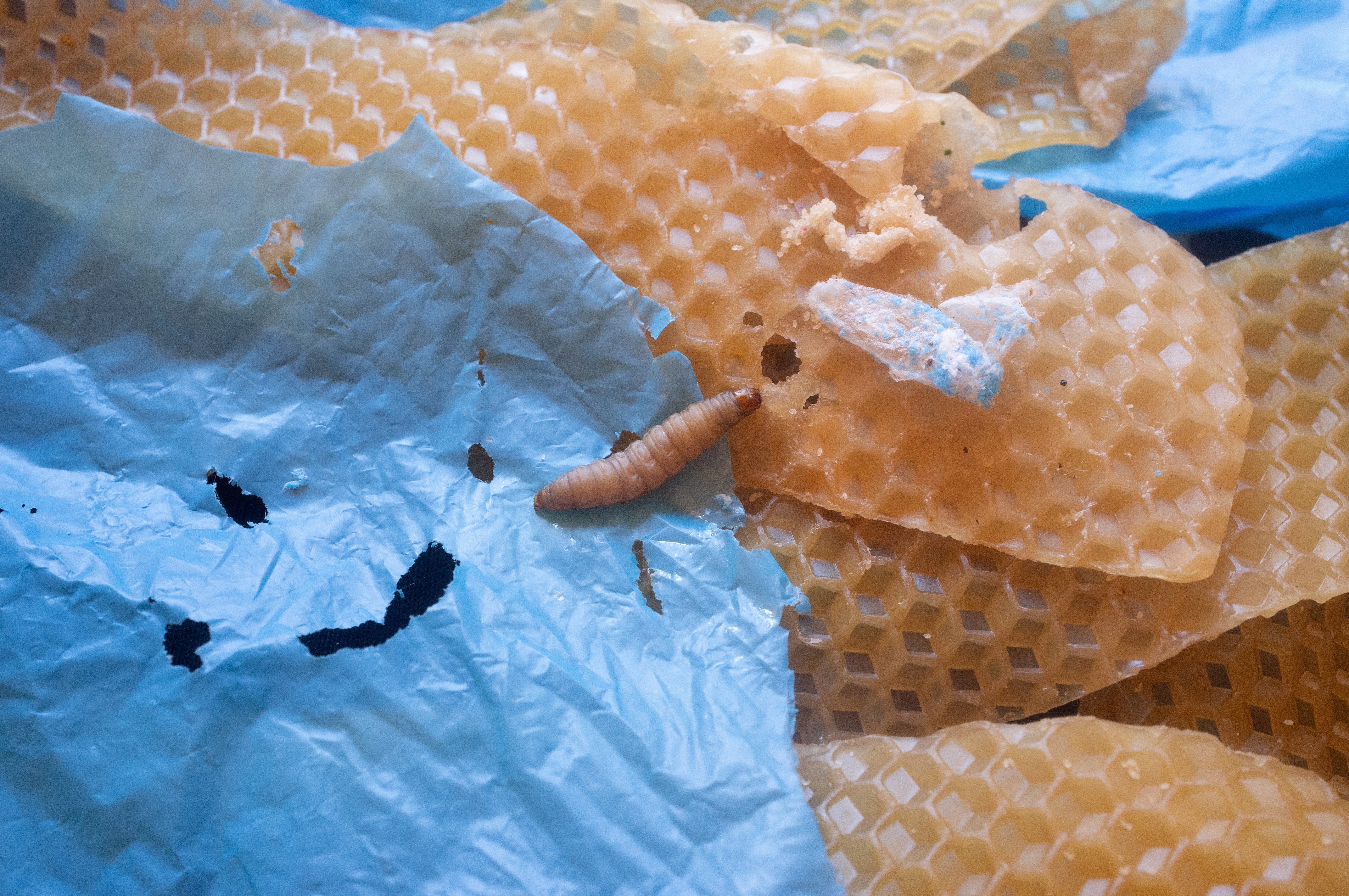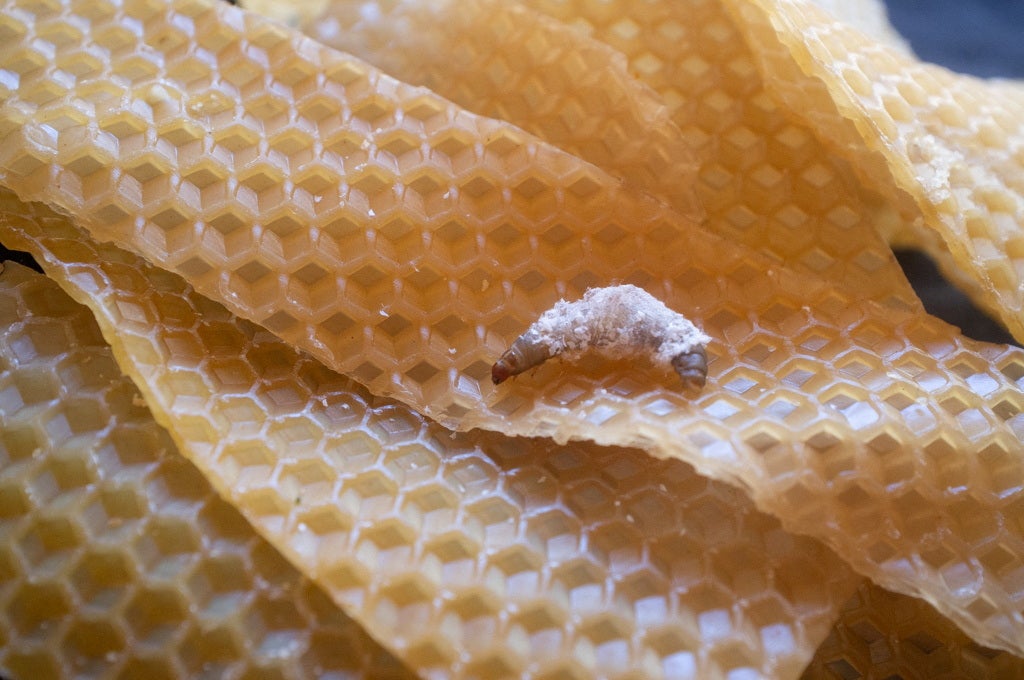‘Humble’ wax worm saliva rapidly breaks down plastic bags, scientists discover
Findings ‘change paradigm of plastic biodegradation’, reports Thomas Kingsley


One of the most environmentally damaging types of plastic can be broken by the saliva of a wax worm, scientists have discovered.
Two substances in the saliva of wax worms - moth larvae that eat wax made by bees to build honeycombs - readily break down polyethylene, the world’s most widely used plastic.
The researchers said the two enzymes identified in the caterpillar saliva were found to rapidly and at room temperature degrade polyethylene, a major contributor to an environmental crisis extending from ocean trenches to mountaintops.
This is “changing the paradigm of plastic biodegradation,” said molecular biologist Federica Bertocchini of the Spanish National Research Council (CSIC), who led the study published in the journal Nature Communications.
“The very same features that make plastic the unique and useful material it is are creating one of the most critical problems of this century,” Ms Bertocchini said.
“Plastics stay in the environment for a long time. It eventually breaks down into small particles, therefore becoming the source of micro and nano plastic particles.
“These plastic particles have been found everywhere, from Antarctica to rain and tap water, which do not only cause obvious environmental issues but are a growing problem for human health.”
For plastic to degrade, oxygen must penetrate the polymer - or plastic molecule - in an important initial step called oxidation. The researchers found that the enzymes performed this step within hours without the need for pre-treatment such as applying heat or radiation.
Polyethylene, first created in 1933, is inexpensive, durable and does not interact with food, making it useful for food packaging and grocery store bags, among other applications.
Wax worms are the larvae of wax moths, a species called Galleria mellonella. Considered pests by beekeepers, the caterpillars feed on beeswax, pollen and honey, occasionally also eating bee larvae.

Scientists propose producing the worms' saliva enzymes synthetically, which the researchers succeeded in doing, to break down plastic waste. Ms Bertocchini said the use of billions of wax worms to do the job has drawbacks including generating carbon dioxide as they metabolize the polyethylene.
“In our case, the enzymes oxidize plastics, breaking it into small molecules. This suggests alternative scenarios to deal with plastic waste in which plastics can be degraded in controlled conditions, limiting or eventually eliminating altogether the release of microplastics,” said study co-author Clemente Fernandez Arias, an ecologist and mathematician at CSIC.
The pursuit of plastic degradation by biological means, or biodegradation, previously focused mainly on microorganisms. A handful of microorganisms were found to break down plastic but only slowing and requiring pre-treatment, complicating the practicality of harnessing it.
Plastic consumption has soared worldwide over the past three decades, with hundreds of millions of tons annually ending up as waste and less than 10 per cent of that being recycled.
The United Nations in March approved a landmark agreement to create the world's first global plastic pollution treaty after talks in Nairobi, with the goal of having a legally binding deal finalized by 2024






Join our commenting forum
Join thought-provoking conversations, follow other Independent readers and see their replies
Comments